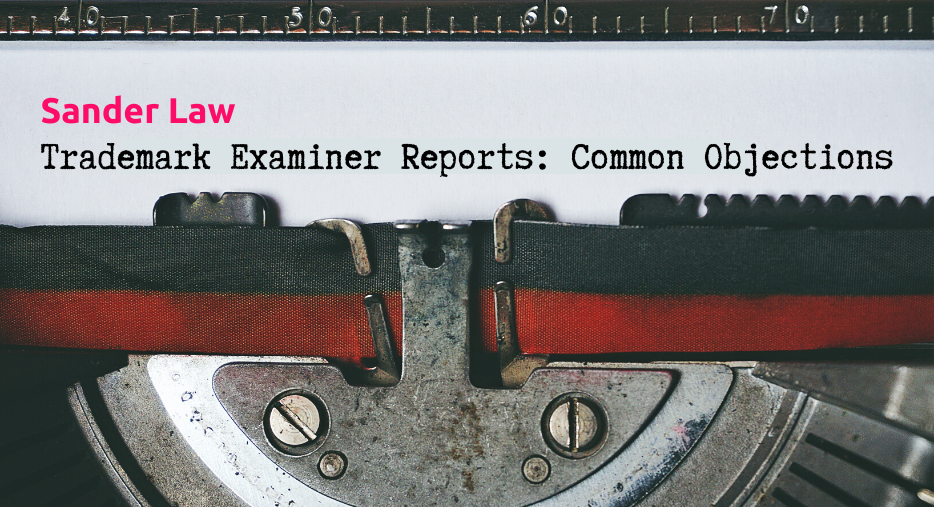
Trademark Examiner Reports: Common Objections
The objections raised by a Trademark Examiner generally fall into one or more of the following categories:
Goods & Services Statement
One common objection is that the listing of products and/or services sold under the trademark are not described in "ordinary commercial terms". These objections may be overcome by submitting an amendment to the goods and services statement.
Improper classification of Goods & Services
The products and/or services identified in the application are categorized by the NICE classification system. To overcome this objection, you need to submit an amended application and possibly may have to pay an additional fee if it adds a new class to the application.
Confusion with another trademark
This is when the Examiner determines that your mark is confusingly similar to another registered trademark or an earlier filed pending trademark application. The trademarks do not need to be identical for there to be a finding of confusion between the marks. Learn more about Trademark Confusion.
Descriptiveness
This objection finds that the trademark is either clearly descriptive or deceptively misdescriptive of the type of product or service sold under the mark. To overcome this objection, generally arguments need to be submitted to CIPO or the applicant can prove that the trademark has Acquired Distinctiveness. Learn more about Descriptiveness.
Inherent Distinctiveness
Since June 17, 2019, CIPO now assesses trademark application as to whether they have Inherent Distinctiveness, that is the mark's ability to distinguish its goods & services from those of others in the marketplace. To overcome this objection, generally arguments need to be submitted to CIPO or the applicant can prove that the trademark has Acquired Distinctiveness.
Have you received a Trademark Examiner Report? Contact Sander Law today to prepare the response!
The above content is for informational purposes only and is not legal or professional advice.